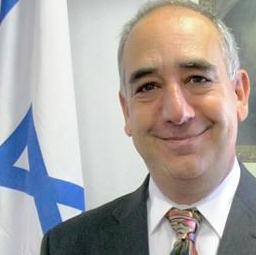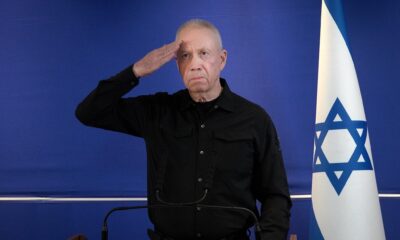
Israel

Former Israeli ambassadors to SA fight for the left
Three former Israeli ambassadors to South Africa have put their names and faces to an online campaign supporting left-wing Israeli political party Meretz.
Circulated via Facebook and on Twitter, the tag line reads, “We were ambassadors in South Africa. We won’t let it happen here too. That’s why we support Meretz.”
Meretz is one of 39 parties competing next month in the fourth parliamentary elections to be held in Israel in less than two years. The party is projected to win four out of 120 Knesset (parliament) seats. Members see themselves as political representatives of the Israeli peace movement.
While not explicitly saying “apartheid”, the word “it” in the campaign is understood to mean exactly that, according to Dr Alon Liel, the former head of the South African desk in the Israeli ministry of foreign affairs and ambassador to South Africa from 1992 to 1994.
“Only very recently did Meretz start using the term ‘apartheid’ as a means to differentiate itself from the Labour Party,” he said. “But I have always supported the term when applied to what’s happening in the West Bank where there are two legal systems. One applies to half a million Israeli settlers and the other applies to two-and-a-half million Palestinians who live on the same piece of land.”
Liel was appointed ambassador during the South African transition from apartheid to democracy. Labour party leader Yitzhak Rabin had just been elected prime minister for the second time, and Jerusalem’s foreign policy objected to apartheid and supported Israel normalising relations with the African National Congress (ANC) leadership.
“We were really, really worried that the new South Africa, controlled by the ANC, would break off diplomatic relations with Israel because of our very intimate relationship with apartheid South Africa,” Liel says.
“I was sent to save the relationship. Six days after I arrived, I met Mandela, even before I handed my credentials to [SA president FW] de Klerk. During that time, relations between our countries were not just normal, but good.”
Israel was secretly negotiating the Oslo Agreement with the Palestinians at the time, and the conversation was about exchanging land for peace and withdrawing from the West Bank. The official policy supported a two-state solution.
“South Africa had its turning point in 1994, when Mandela was appointed. We had our turning point when Israel officially dropped the two-state policy about 10 years ago and replaced it with annexation. Once this happened, I could no longer support the government. For me, annexation is the end of Zionism and democracy.”
While he’s used to being called a traitor, Liel insists he’s still a very loyal Israeli.
“Like apartheid South Africa and post-apartheid South Africa, it’s the same country. So, too, is Israel of Oslo and Israel of annexation the same country. But there was a U-turn in policy. I couldn’t be an ambassador for Israel today.”
Neither could Ilan Baruch who served a decade later, from 2005 to 2008, during Thabo Mbeki’s presidency.
“At the time, there was good reason to believe we could actually work out some reconciliation between South Africa and Israel as Mbeki was impressed with the bold steps taken by then Prime Minister Ariel Sharon in the context of disengagement,” said Baruch.
“I think post-apartheid South Africa was looking at our conflict from the point of view of conflict resolution, which wasn’t the case with Israel. Israel succeeded – unfortunately – in bringing the Palestinians to the brink of defeat. Had it been otherwise, had we seen international players apply pressure on the two parties to depart from their original positions and be prepared to take a different course, that would have given us a chance at peace making. But that was not the case. I don’t judge South Africa as the party that spoilt any opportunity for peace; I blame South Africa for not applying enough pressure on Israel to make peace an option.”
Baruch also blames Benjamin Netanyahu, who became Israeli prime minister for the second time in 2009 for moving the country further to the right. Two years later, he resigned from the government in protest against the political partnership between Netanyahu and Avigdor Lieberman, the leader of the right-wing Israel Our Home party. Since then he’s been active in civil society in opposition to the government.
A long-time Meretz supporter, Baruch admits that when he was ambassador to Pretoria, he was wrestling between his personal convictions and the desire to serve his country the best he could. That is, he says, “even if the prevailing positions of my government were pretty far away from my own”.
“I want to see Meretz succeed in these upcoming elections. I’m very proud to be supporting a political party that is strong on ideology,” he says.
Another former ambassador to South Africa, Arthur Lenk, who served from 2013 to 2017, is also relieved to no longer feel conflicted between his personal and public beliefs.
“After 25 years in which I needed to keep quiet about my opinions, I’m no longer at that point in my life,” he says.
But Lenk says he lent his name to the advert not to make a comment on South Africa or its politics, and certainly not on the Jewish community “who I lived with for four years and have the warmest feelings towards”.
“I think what’s clever about the campaign is its use of words and non-use of words – it leaves a lot open for an audience to read what she/he wants to. The nuance of the word ‘it’ isn’t unintentional. The word ‘apartheid’ isn’t used. The advert is in Hebrew for a domestic Israeli audience. My message is to the Israeli voter.”
Lenk left the Israeli government after returning from Pretoria, initially for a break. But later, he decided to go into the business of capacity building in part because of what he saw it could achieve in South Africa.
“I think in the upcoming Israeli election, very few of us are voting on the Israeli-Palestinian issue. One of the parties that is talking about peace and co-existence in the neighbourhood with the Palestinians is Meretz, and for that reason I support it and think it’s an important voice.”
Says South African-born veteran journalist and Israeli author, Benjamin Pogrund, “I’m surprised that two men who spent several years as ambassadors in South Africa learnt so little that they actually equate Israel with apartheid South Africa.”
The Israeli ministry of foreign affairs declined to comment.











Nicole
March 4, 2021 at 9:09 am
It makes one wonder if part of the reason South African Jewry has weak relations with Israel is because these 3 men had a skewed view of South African history and current affairs .